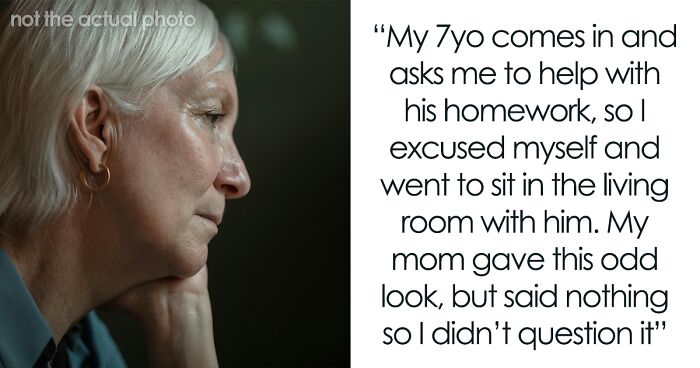
“What’s The Point Of Getting A New Wife”: Man Defends Fiancee From His Mother, Kicks Her Out
Interview With ExpertIn a perfect world, we would all become just as close with our in-laws as we are with our own parents. They would welcome you into the family with open arms sans any tension or hesitation. But in reality, most of us don’t even have a perfect relationship with our own mother and father, so it’s much more rare to be on amazing terms with your partner’s parents.
But one man was willing to risk hurting his relationship with his mom to ensure that he defended his fiancée’s honor. Below, you’ll find the full story that he shared on Reddit, detailing how his mother got kicked out of his home, as well as conversations with Dr. Patricia Papernow, an expert on blended families, and Kiva Schuler, Founder and CEO at The Jai Institute for Parenting.
This man was immediately offended when he heard his mother making snide remarks about his fiancée
Image credits: Curated Lifestyle / unsplash (not the actual photo)
So he made it clear that she’s not welcome in their home unless she can be respectful
Image credits: Edward Cisneros / unsplash (not the actual photo)
Image credits: Jessica Rockowitz / unsplash (not the actual photo)
Image credits: anonymous
Later, the author responded to a few comments from readers and provided more information about the situation
“A stepfamily is a fundamentally different structure from a first-time family”
To learn more about what it’s like to become a stepparent, we reached out to a couple of experts on the topic: Dr. Patricia Papernow, an expert on blended families who’s written two books on the topic, and Kiva Schuler, Founder and CEO at The Jai Institute for Parenting. They were both kind enough to have a chat with Bored Panda and explain what the role of being a stepparent often entails.
“What works in a stepfamily is often very different from what works in a first-time family,” Dr. Papernow shared. “So many people go into a stepfamily expecting to create a ‘better’ first-time family. But a stepfamily is a fundamentally different structure from a first-time family.”
“In a first-time family, kids arrive hard-wired for attachment to BOTH parents and vice versa. A first-time family has time to build a shared sense of ‘how we do things’ and ‘what we care about’ with the whole family over time,” she explained.
On the other hand, in a stepfamily, only one adult in the family, the parent, has that attachment, Dr. Papernow continued. “And children in a stepfamily have an attachment to another parent, dead or alive, wonderful or horrid, outside the household,” she noted. “The shared sense of ‘how we do things’ also lies between the parent and their kids, and to some extent, with the ex-spouse, not in step relationships.”
This structure makes for some normal challenges, the expert shared. “We now know a lot about what works to meet those challenges. Much of what works is actually different from what works in a first-time family. There is a ton of ‘advice’ out there, but most of it is just the opinion of one person. It is not what we call ‘evidence-based.’ As a result, much of this ‘guidance’ is misleading and even destructive,” Dr. Papernow warns.
“Even worse, very few clinicians get any training at all in working with stepfamily dynamics. This is despite the fact that, in the U.S. 42% of Americans have a close stepfamily relationship,” she added. “It’s why I can’t retire even though I’m nearing 80!”
Kiva also added that being a stepparent can definitely be challenging. “It’s difficult to navigate boundaries and know when to step in or step back,” the relationship expert says. “Ideally, co-parents avoid undermining each other (whether their partner or their ex) and save sensitive conversations for times when children aren’t present.”
Image credits: Wesley Tingey / unsplash (not the actual photo)
“The most important factor for blended families is maintaining frequent, clear, and consistent communication about needs, expectations, vision, values, and goals”
“In psychology, triangulation is a common occurrence in blended families,” Kiva continued. “This happens when a third person becomes involved in a conflict between two individuals. The goal of triangulation is often to manipulate or control a situation by creating alliances or shifting blame away from the original conflict. This story exemplifies triangulation, as OP’s mom attempted to insert herself between the father and his fiancée. Preparing for inevitable conflict before it arises allows couples to establish an agreed-upon process for handling challenges.”
“The most important factor for blended families is maintaining frequent, clear, and consistent communication about needs, expectations, vision, values, and goals,” the parenting expert says. “Depending on their age, children can be included in these conversations as well!”
So how much parenting should stepparents be expected to do? “When you marry or partner with someone who has children, you accept a significant responsibility. You will influence a child’s life, worldview, and self-image,” Kiva shared. “Like Goldilocks and the three bears, each blended family must work toward finding their own ‘just right’ balance.”
“If a stepparent is too passive or uninvolved, a child might create various stories to explain why—and the same is true if a stepparent is overbearing, controlling, or possessive,” she noted. “Harm isn’t caused by conflicts, disagreements, or different opinions themselves. Rather, it stems from leaving these issues unaddressed to fester over time.”
Kiva recommends asking your partner questions like ‘How can I best support you in your parenting?’ or ‘What would you like my role to be with the kids?’ “[This] helps maintain trust and connection in the relationship. The ultimate goal is collaboration,” she explained.
“The research is telling us that both parent-child relationships and positive stepparent-stepchild relationships are very important for children’s wellbeing,” Dr. Papernow added. “But usually, parenting and stepparenting are different. Parents start out with that strong attachment and shared sense of ‘us.’ Stepparents have to build it slowly.”
“We now have more and more research telling us that, as long as stepparents lead with warmth and not control, and parents retain the disciplinary role, a VERY wide range of stepparent roles is linked to positive outcomes for kids,” Dr. Papernow shared. “Positive stepparent roles range from adult friend, to like an aunt or uncle, to primarily helps with homework and academics, to what one researcher has called ‘casually connected’ – warm and friendly and caring, but not parental.”
“There are indeed a few stepparents who have very involved, parent-like roles, usually with very young children. It’s actually a small percentage! And this ONLY works when children are available for this, and when the stepparent does NOT compete with or try to replace the children’s other parent,” the expert says.
“All of these roles are linked to positive wellbeing for kids,” Dr. Papernow noted. “That last ‘casually connected’ role for stepmothers is linked to well above-average self esteem for children.”
Image credits: Ben Iwara / unsplash (not the actual photo)
“This dad is doing exactly what we know works best for kids in stepfamilies: maintaining his close, warm relationship with his kids”
However, Dr. Papernow says what does not work is trying to have a stepparent replace the children’s other parent. “What does not work is for Dad to leave parenting to Stepmom. And the two stepparent roles that do not work are very distant/uninvolved (this is NOT Millie) and coercive discipline (also not Millie I’m guessing).”
So what advice would be helpful for the couple in this situation? “Here’s a truth about being an adult: not everyone will love who we love, agree with our choices, or have the emotional maturity to communicate their feelings and needs appropriately,” Kiva told Bored Panda.
“Setting boundaries with family members can be both compassionate and firm. Another (sometimes frustrating) lesson of adulthood is realizing how futile it is to try to ‘make’ another person be, do, or act differently,” the expert shared. “Such attempts often lead to power struggles and the kind of family drama that emerged in this story.”
“We don’t need to defend our choices or actions as a parent, not even to ‘well-meaning’ family members,” Kiva continued. “The outcome of this story might have been different if Dad had simply said, ‘Mom, we are clear on our shared responsibilities in this house. Thanks for your concern, but we’re good.'”
In this particular situation, Dr. Papernow points out that this father’s parents have a first-time family idea of stepparenting. “It’s also a rather sexist idea that the woman/mom should help kids, not the dad,” she noted. “In fact, again, this dad is doing exactly what we know works best for kids in stepfamilies: He is maintaining his close, warm relationship with his kids. He is responding when they reach out for help. He is not imposing on them to reach out to Millie.”
Kiva added that relationship dynamics with our parents are rooted in years of shared experience. “We play familiar roles, get caught up in well-worn patterns of conflict, and revisit old emotional wounds. When parents commit to personal growth and healing, they can break these cycles—avoiding manipulation without escalating conflicts,” she explained. “This is the greatest gift we can give children, both as parents and stepparents.”
Image credits: Brooke Cagle / unsplash (not the actual photo)
Many readers took the father’s side and assured him that he was right to defend his fiancée
Later, the author shared an update and explained that he has since set boundaries with his mother
Image credits: Vitaly Gariev / unsplash (not the actual photo)
Image credits: Getty Images / unsplash (not the actual photo)
Image credits: anonymous
Readers once again applauded the man for standing up for his partner
Poll Question
Thanks! Check out the results:
"Apparently she's telling people that her last (and worst) comment, the one I kicked her out for, was "said in jest"," BuIIshit. Bullies, bigots, and aßholes -always- backpedal to "joke" when they're called on their carp. It wasn't a joke. It was something she thought she could get away with.
Ah yes of course, the old „it was only a joke“ excuse is the last resort of people who know their in the wrong but don’t want to admit it.
Stepparents, especially when there are two living parents, have no legal rights or obligations. There is no reason that stepchildren should love the stepmother either. Being friendly and respectful, if the stepmother is also, is enough. Natural parents MUST meet with an attorney ASAP and straighten a few things out to provide for the children. In the US unadopted stepchildren have no rights when natural parents die intestate or leave estate to stepparents.
I've never really thought about that. Does that mean that if a widow/er married again and died later on, the children would have to go live with the late dad's or late mom's family, even if they have a good relationship with their stepparent and none/not a good relationship with their biological relatives? I feel like that could be quite traumatic on top of losing their remaining biological parent. Very specific set of circumstances, I admit, but I wonder whether there's any way to plan for something like this through a person's will or something. With the stepparent having NO legal rights, would the court even listen if the child said they want to stay with them? Oh my.
Load More Replies..."Apparently she's telling people that her last (and worst) comment, the one I kicked her out for, was "said in jest"," BuIIshit. Bullies, bigots, and aßholes -always- backpedal to "joke" when they're called on their carp. It wasn't a joke. It was something she thought she could get away with.
Ah yes of course, the old „it was only a joke“ excuse is the last resort of people who know their in the wrong but don’t want to admit it.
Stepparents, especially when there are two living parents, have no legal rights or obligations. There is no reason that stepchildren should love the stepmother either. Being friendly and respectful, if the stepmother is also, is enough. Natural parents MUST meet with an attorney ASAP and straighten a few things out to provide for the children. In the US unadopted stepchildren have no rights when natural parents die intestate or leave estate to stepparents.
I've never really thought about that. Does that mean that if a widow/er married again and died later on, the children would have to go live with the late dad's or late mom's family, even if they have a good relationship with their stepparent and none/not a good relationship with their biological relatives? I feel like that could be quite traumatic on top of losing their remaining biological parent. Very specific set of circumstances, I admit, but I wonder whether there's any way to plan for something like this through a person's will or something. With the stepparent having NO legal rights, would the court even listen if the child said they want to stay with them? Oh my.
Load More Replies...
 Dark Mode
Dark Mode 

 No fees, cancel anytime
No fees, cancel anytime 













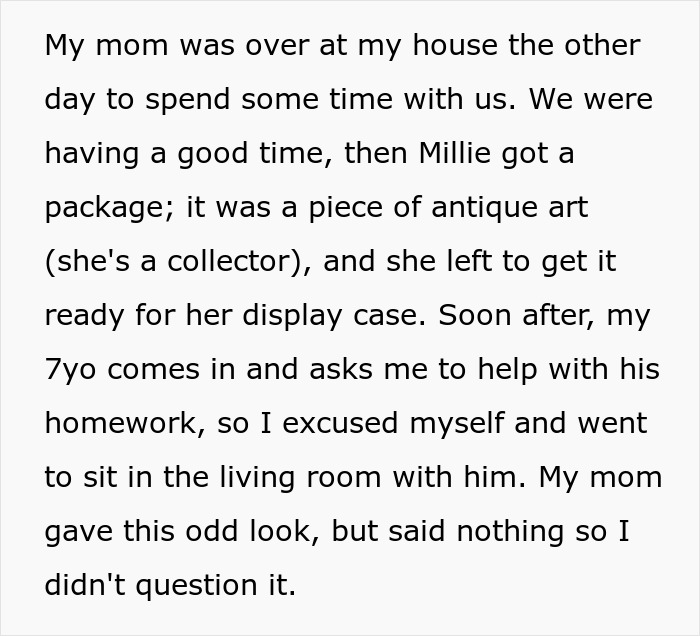
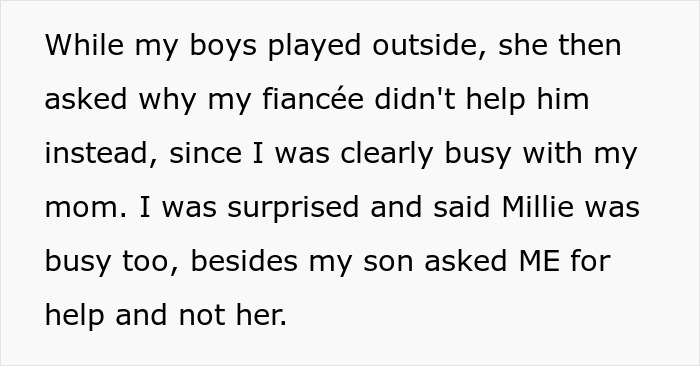
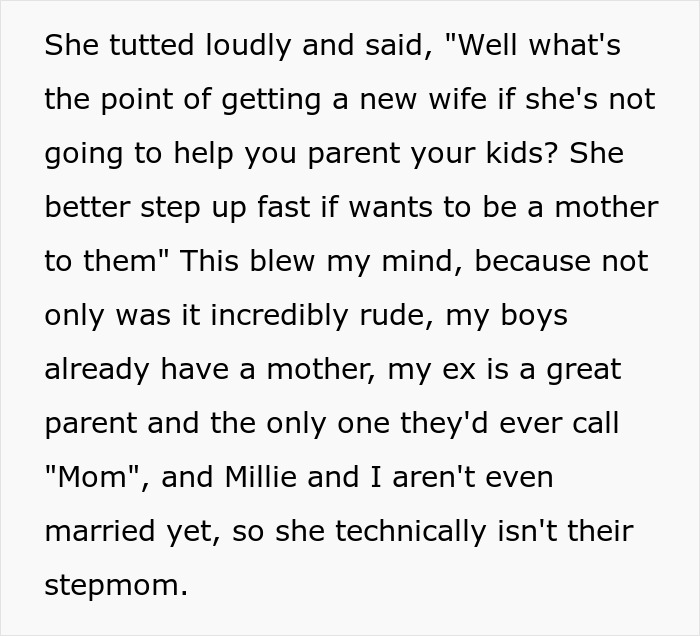
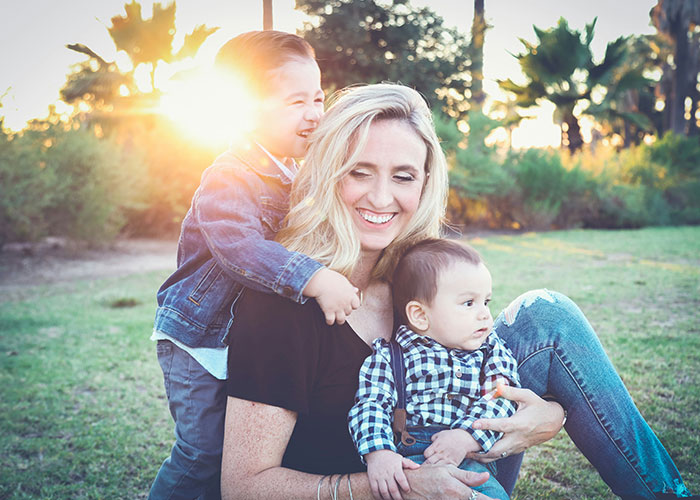
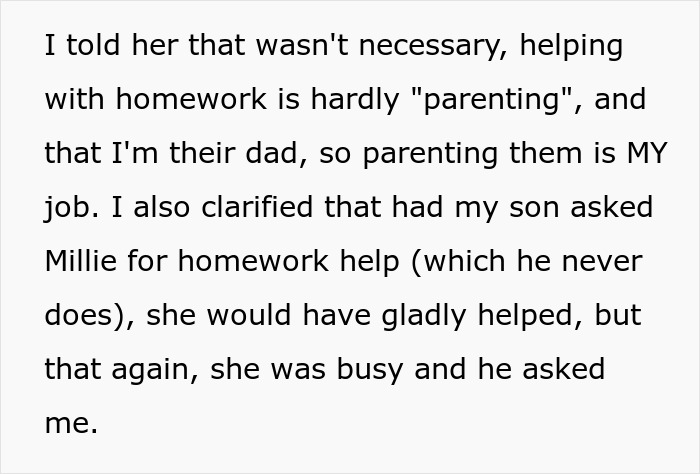
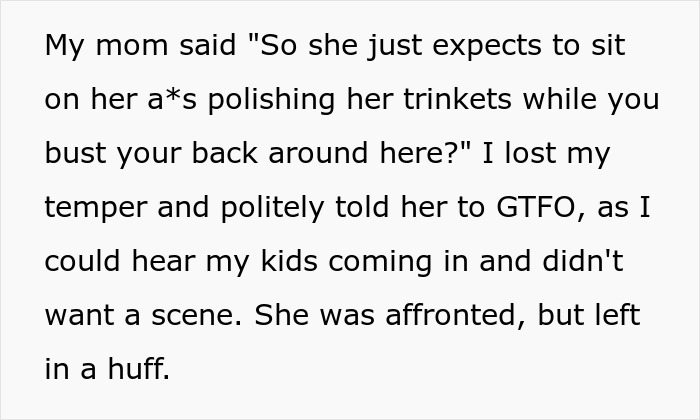
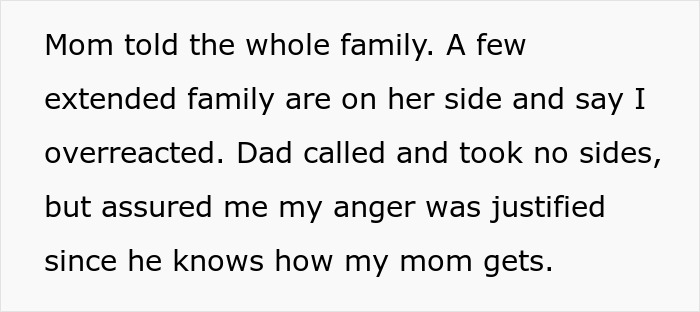
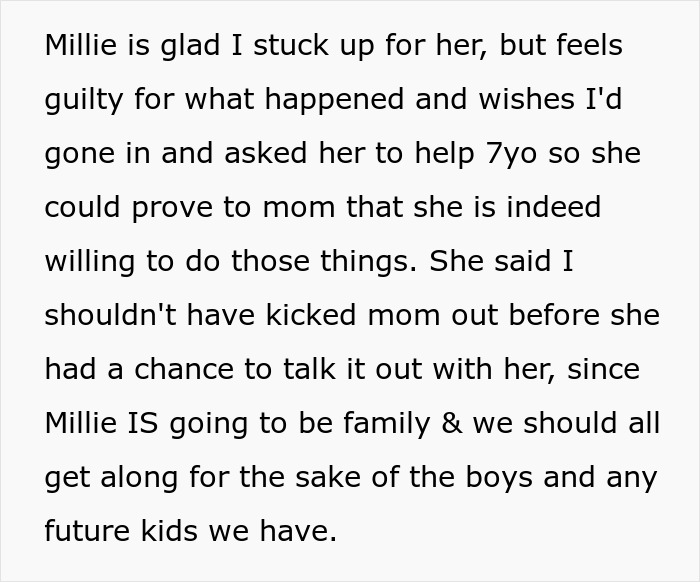

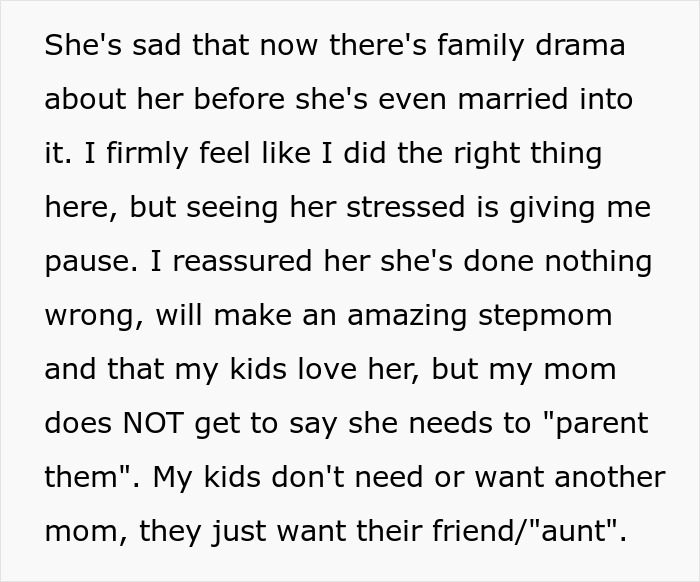

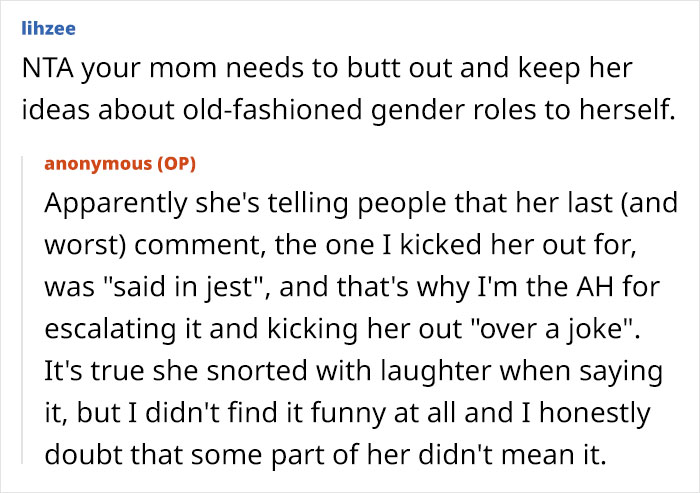
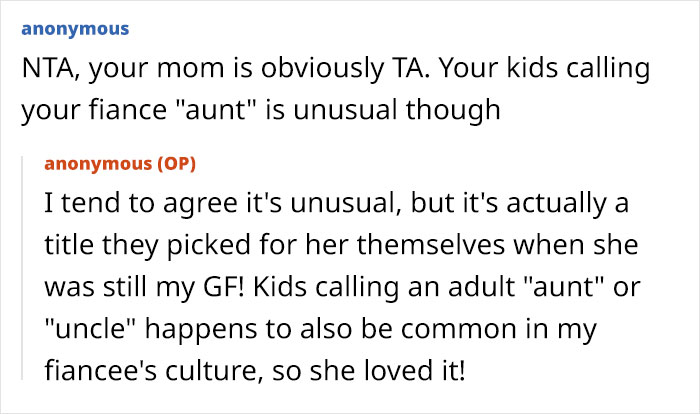
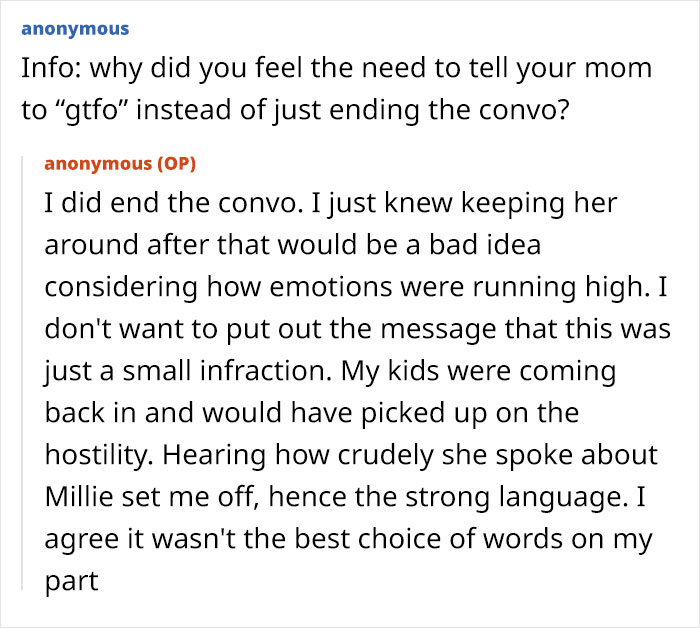

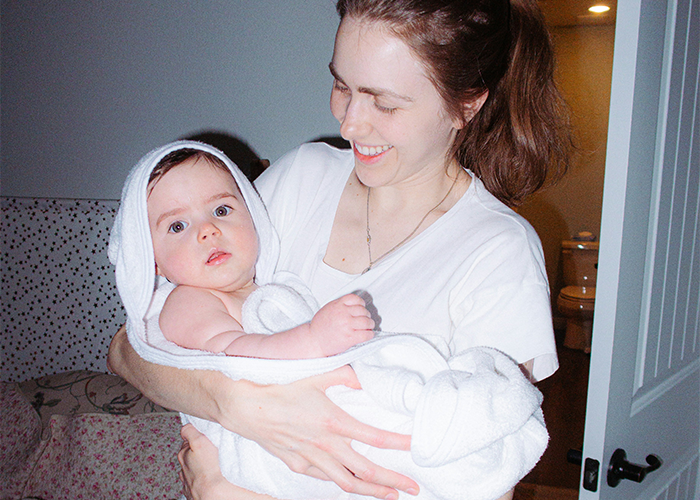
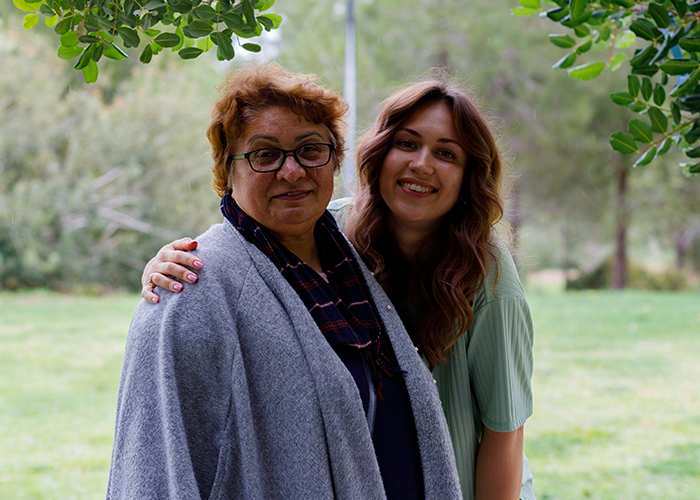
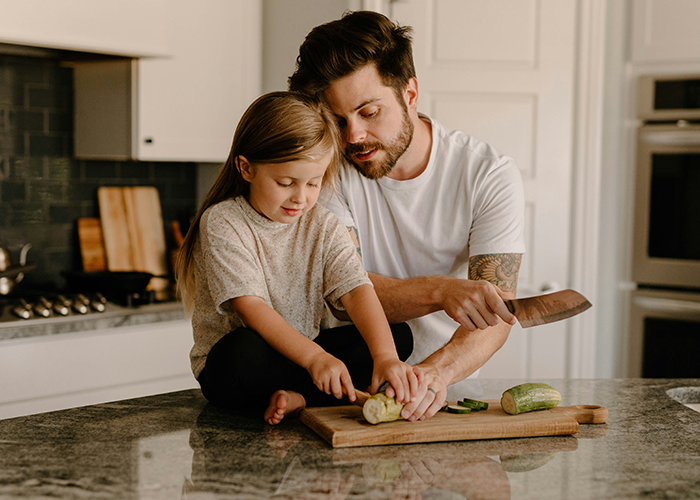
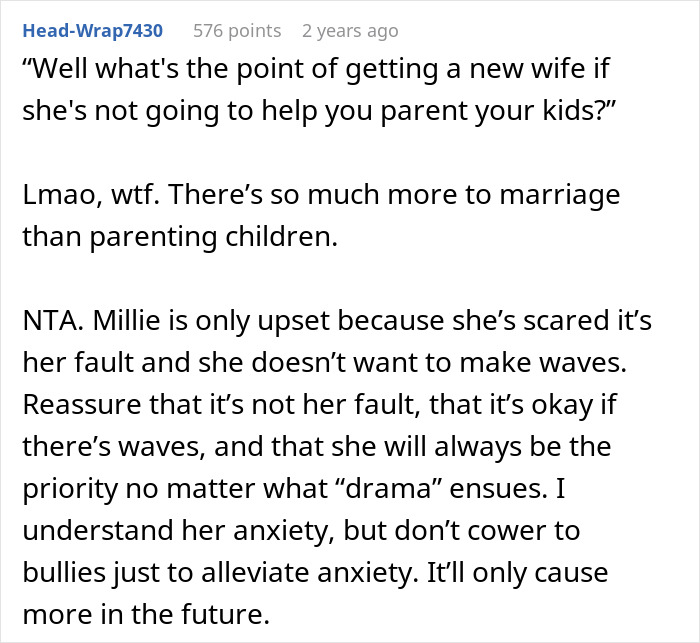
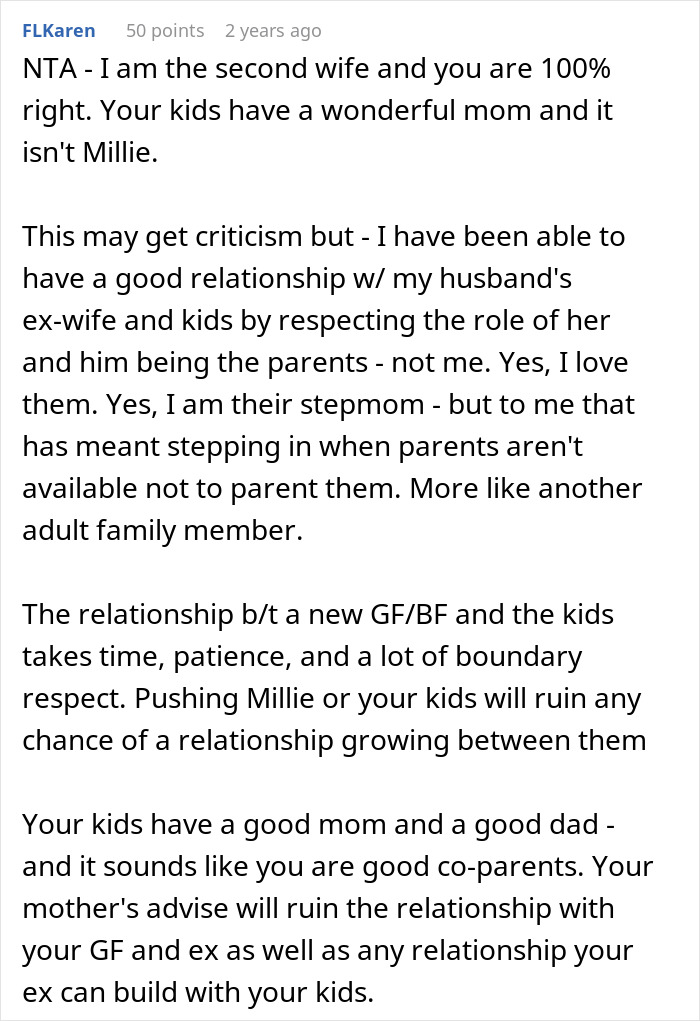

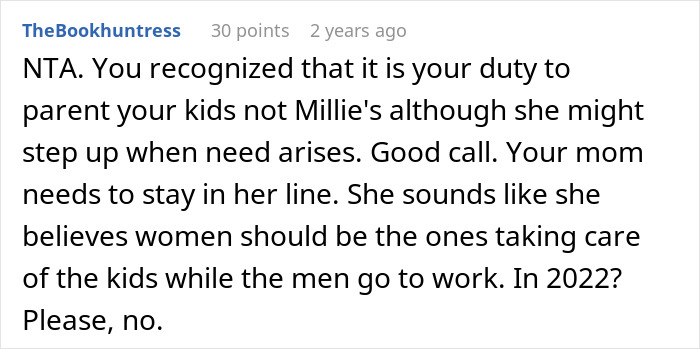



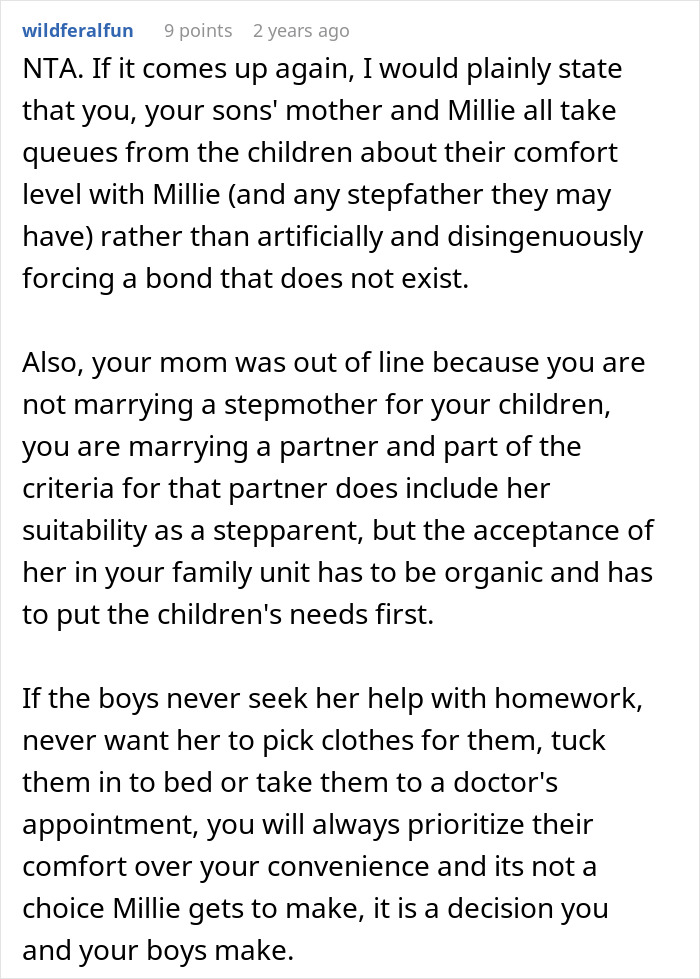


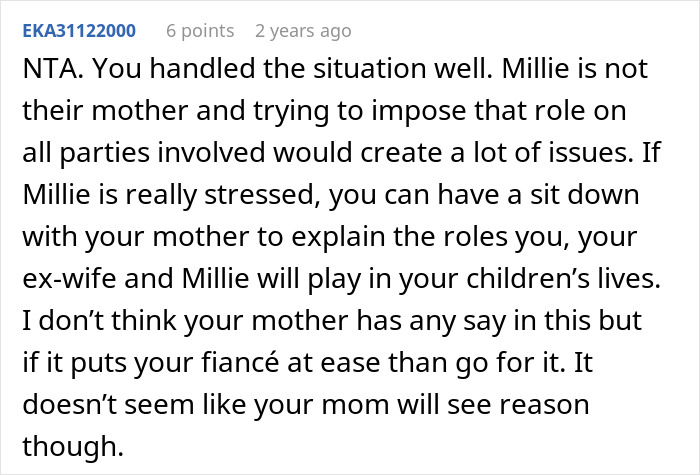


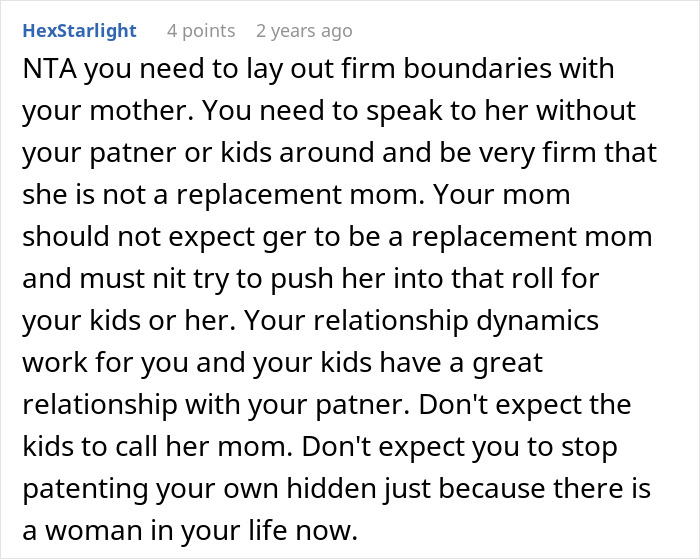

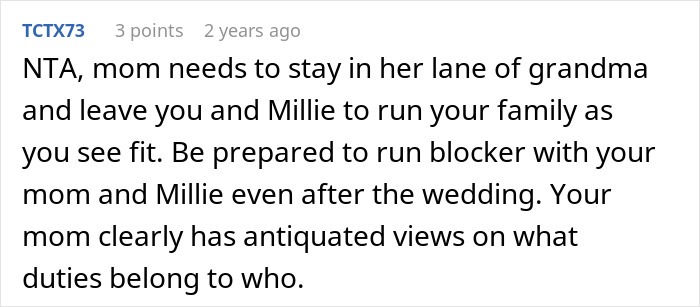


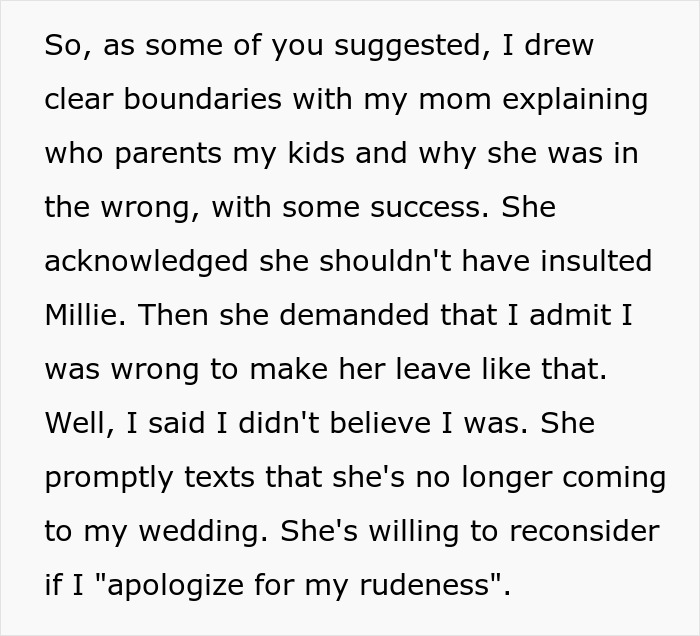
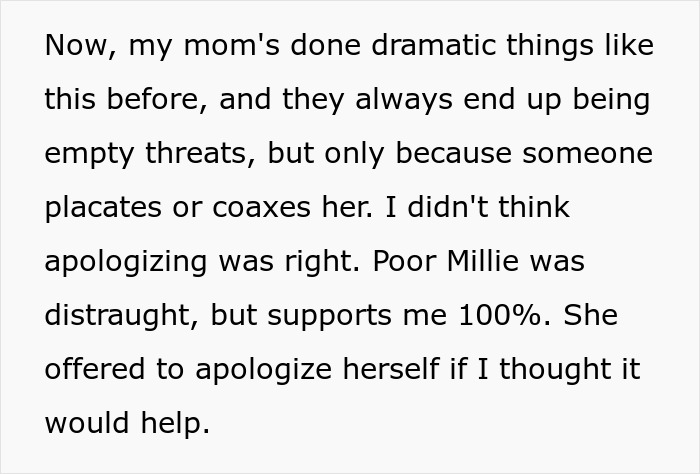
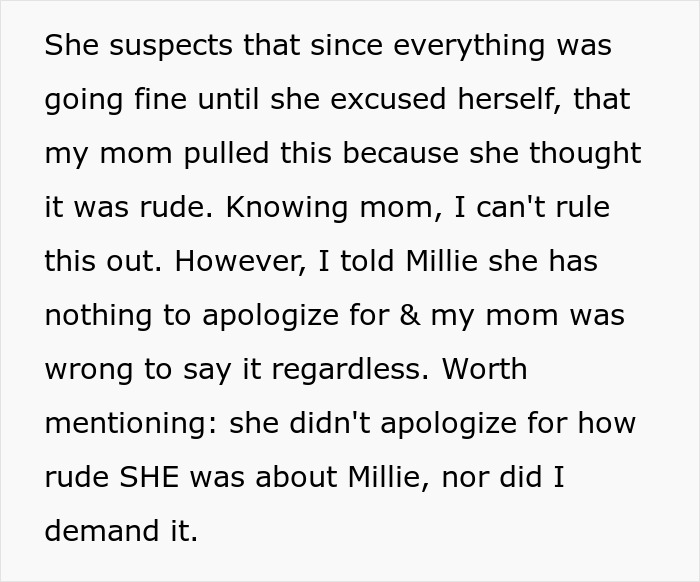
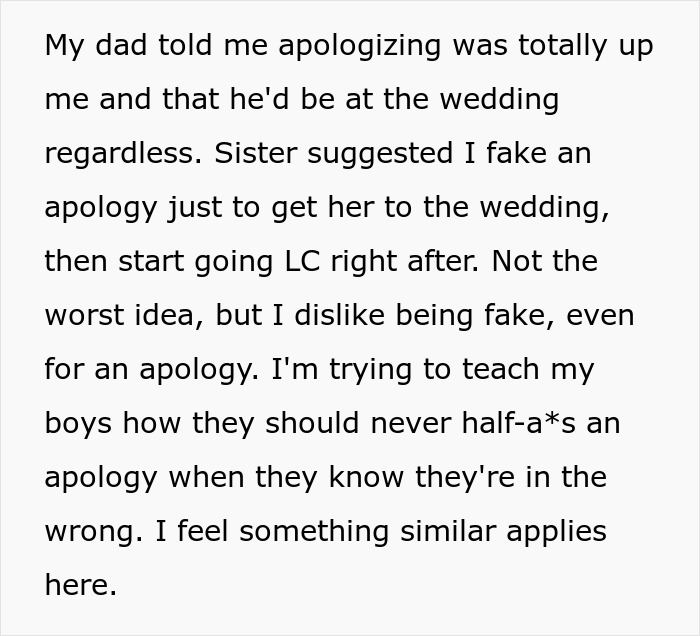

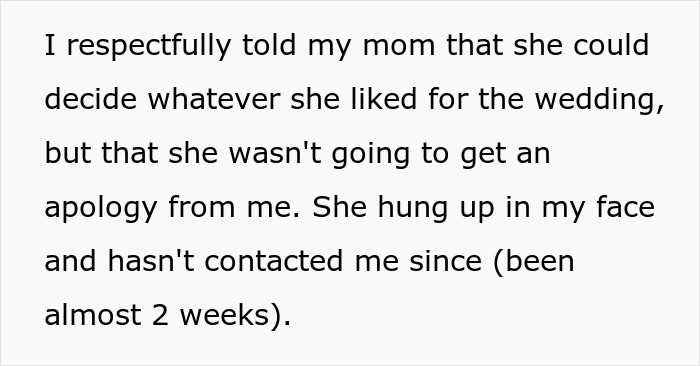
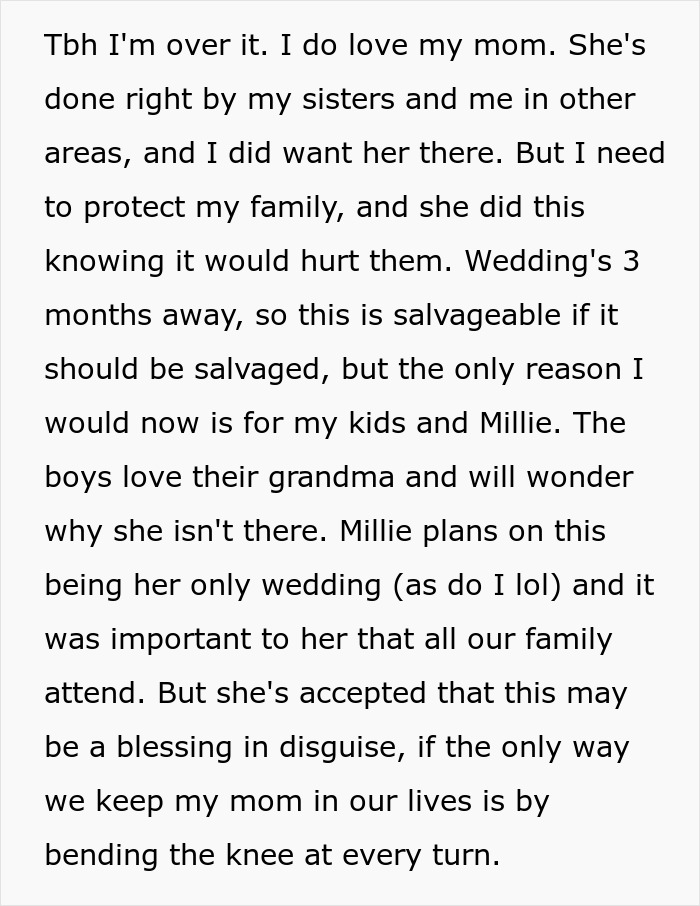
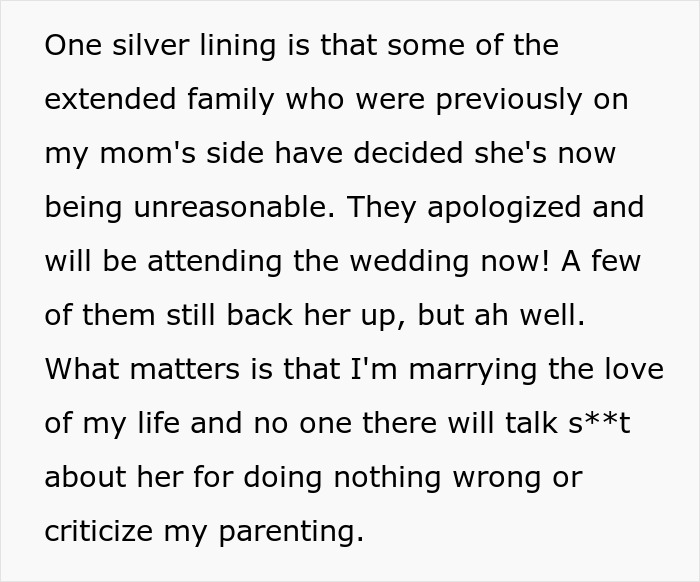




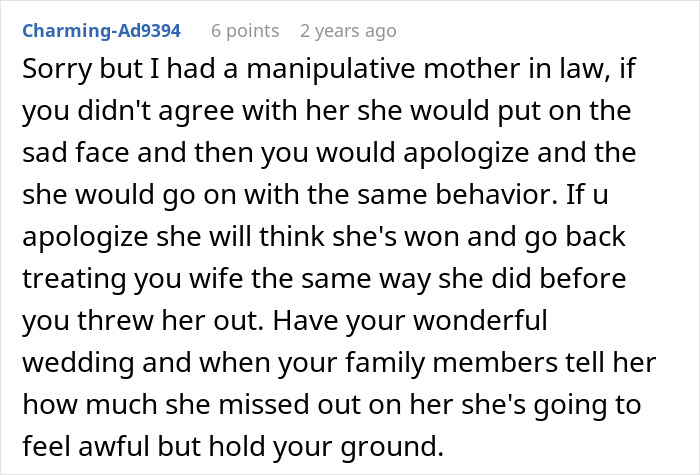











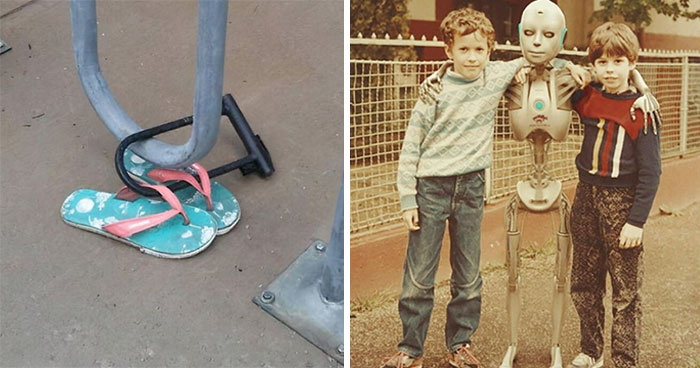
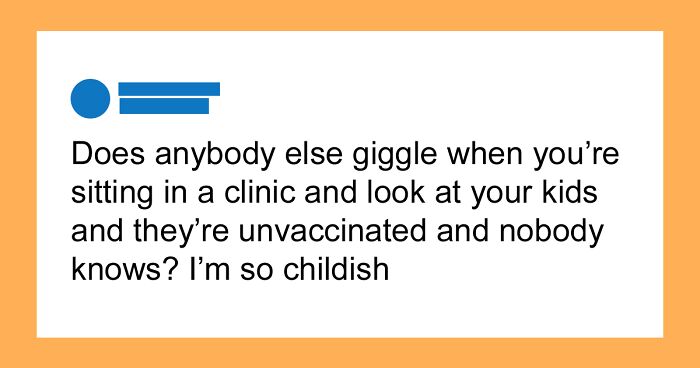

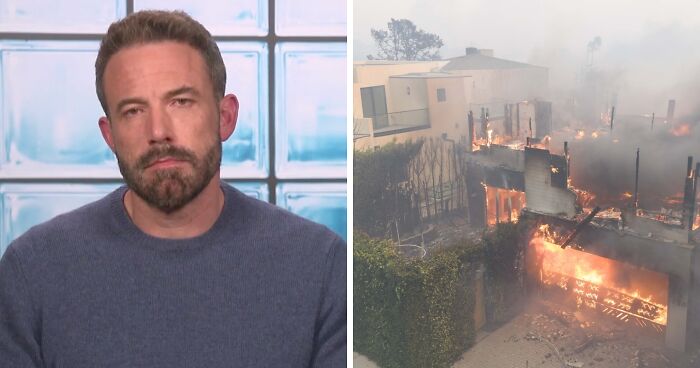

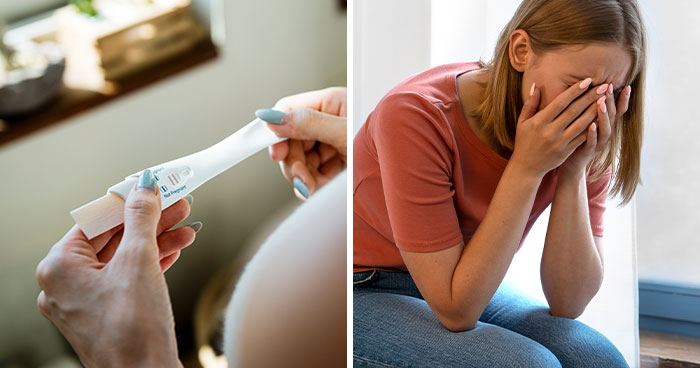






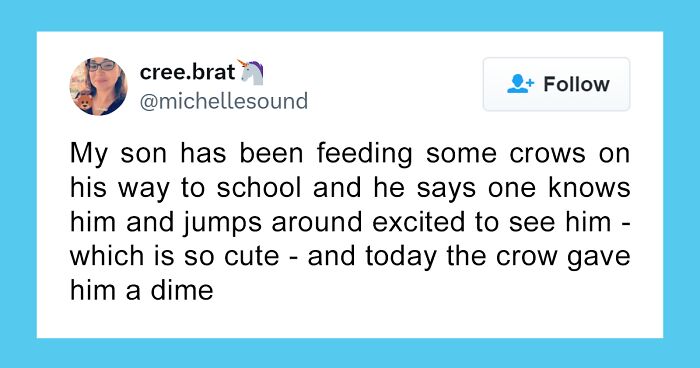
29
10